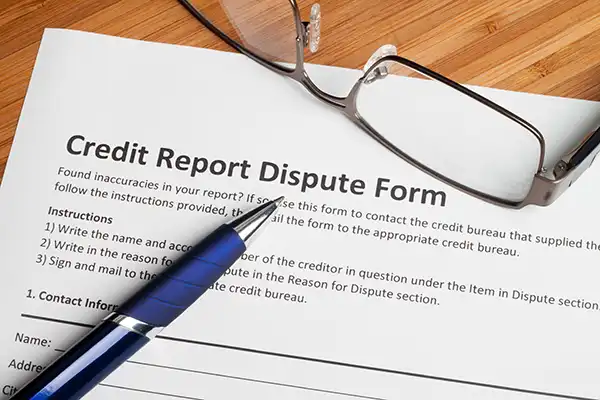In the intricate web of financial records and credit reporting, credit reports errors can be a common yet distressing occurrence for consumers. These inaccuracies can Range from minor clerical mistakes to more significant issues that may impact one’s credit score, potentially affecting loan approvals, interest rates, and even employment opportunities.

Understanding Credit Bureau Errors
Credit bureau errors can manifest in various forms, such as incorrect personal information, outdated account statuses, or erroneous payment histories. These mistakes often arise from data entry errors, miscommunication between creditors and bureaus, or, more alarmingly, as a result of identity theft. Such discrepancies can lead to unjustified denials of credit or inflated borrowing costs, underscoring the importance of maintaining an accurate credit report.
The Right to Dispute
Fortunately, consumers are not powerless in the face of such errors. The Fair Credit Reporting Act (FCRA) empowers individuals with the right to dispute inaccuracies on their credit reports. This process involves notifying the respective credit bureau of the disputed information, providing evidence to support the claim, and requesting an investigation. Credit bureaus are legally obligated to investigate disputes, typically within 30 days, and correct any verified inaccuracies.
Steps to Rectify Errors
To initiate a dispute, one should first obtain a copy of their credit report from each of the three major credit bureaus—Experian, Equifax, and TransUnion—through AnnualCreditReport.com. Upon identifying any errors, the consumer should:
1. Gather supporting documentation that corroborates the correct information.
2. Draft a concise dispute letter, clearly identifying each error and the desired correction.
3. Send the dispute letter, along with copies of supporting documents, to the credit bureau and the information provider.
It is advisable to send these communications via certified mail, ensuring a record of delivery and receipt. Following the submission, the credit bureau will conduct an investigation, update the credit report if necessary, and provide a written summary of the changes.
Monitoring and Prevention
Regular monitoring of credit reports is a proactive measure to detect errors early and prevent their potential negative consequences. Consumers are entitled to one free credit report from each bureau annually, and additional checks are recommended, especially before making significant financial decisions.
Identity theft protection Services and credit monitoring tools can also serve as safeguards, alerting individuals to changes in their credit reports that may indicate fraudulent activity.
Credit bureau errors, while frustrating, are not insurmountable. By understanding one’s rights, taking prompt action to dispute inaccuracies, and vigilantly monitoring credit reports, consumers can protect their financial integrity and ensure their creditworthiness is accurately represented.
For more detailed guidance on disputing credit report errors, resources are available through the Consumer Financial Protection Bureau (CFPB) and other consumer advocacy organizations. Taking control of one’s credit information is a crucial step towards financial empowerment and stability.